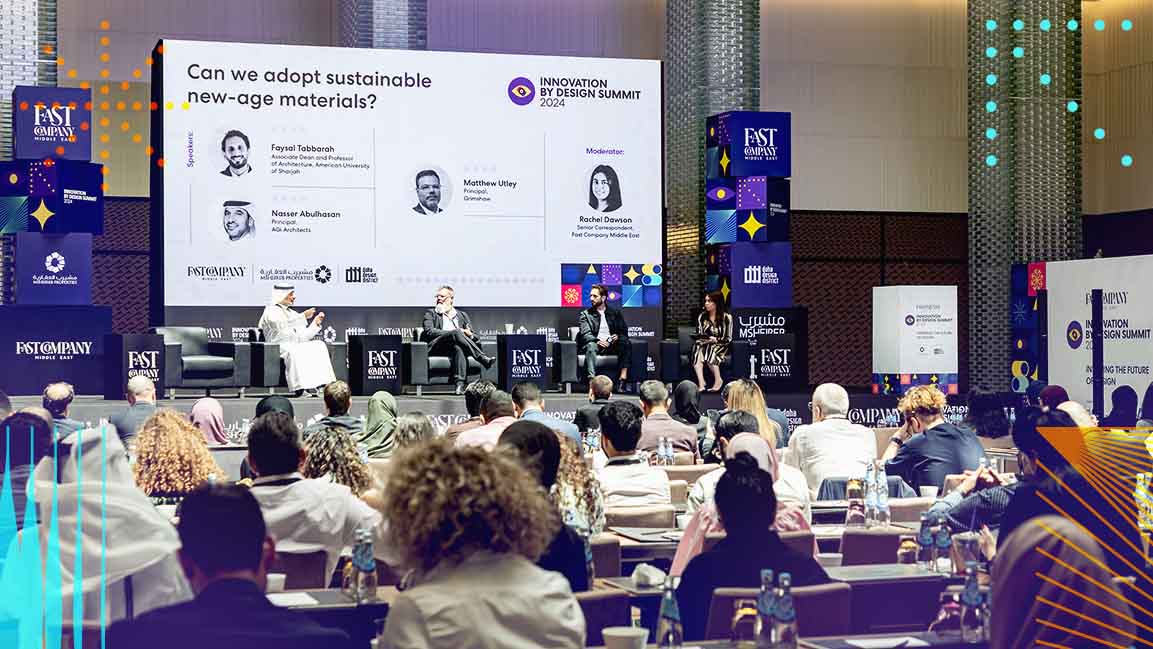- | 9:00 am
The hospitality industry in the Middle East is serious about sustainability. Can these strategies help?
From sourcing ingredients locally and reducing food waste to using energy-efficient equipment, the F&B industry can utilize several unique approaches for sustainability. But how best to accomplish all?

Integrating sustainability has been increasing in necessity and focus across all industries, not only in the Middle East but around the globe. In January, the UAE announced that 2023 would be the year of sustainability, with plans for environmental activations across the country. With the nation hosting COP28 later this year, it will be a landmark year of climate and environmental action in the UAE.
As noted by research consultants Edelman Intelligence, F&B industry leaders and decision-makers are even more concerned than consumers regarding climate change, with 67% agreeing that it’s more important to do good than not to harm, vs. 57% of consumers.
These results are partial because F&B companies are impacted by climate change, affecting their supply chain and productivity and the need to reduce their environmental impact. Edelman’s research reports that food industry decision leaders see water quality and climate change as the top risks to the food system, placing them ahead of the pandemic, followed by land degradation and waste.
As the GCC and region face rising water scarcity and a growing population, active accountability toward sustainability becomes increasingly important. Restaurants can play a significant role in addressing these issues by implementing sustainable practices in their operations.
INCORPORATING DIFFERENT METHODS
For the F&B industry, sustainability can utilize several unique approaches to minimize negative environmental impact. Incorporating different methods in the hospitality sector can include sourcing ingredients locally, reducing food waste, using energy-efficient equipment, promoting fair labor practices, educating customers about best practices, and encouraging guests to make environmentally conscious dining choices.
This approach could include offering information about sourcing ingredients, providing tips on reducing food waste, and highlighting the restaurant’s sustainable practices.
But how to specifically accomplish all of the above? With an intimidating list for managers to tackle, fortunately, there are numerous industry leaders with years of experience making active strides on above across all levels – restaurant, property, and group.
Throughout his career, Chef Cláudio Cardoso, Culinary Director of SLS Dubai Hotel & Residences, has taken a personal approach to integrating sustainable practices across the kitchens and educating hospitality professionals.
In leading a property, his method extends to every department. Claudio says, “Sustainable practices shouldn’t be an obligation; these routines should be something people are passionate about, especially as they can make decisions for the future of our planet. Even when taking a small environmental step, the choice can grow larger. These efforts from everyone translate to a more significant impact for all.”
When asked about specific techniques, Claudio suggests, “In hospitality, it’s about sourcing locally, using community producers, reducing or recycling waste, and using anything leftover for compost. Chefs are rock stars who can change and impact what ends on the plate in our restaurants and events. We’re setting standards.”
Similarly, Omar Shihab, Founder and Chief Sustainability Officer of BOCA, has been at the forefront of sustainability efforts in the industry for years. He has been recognized for his efforts as the Sustainability Champion of the Year Gault&Millau for 2022, and Gault&Millau awarded BOCA Sustainable Kitchen of the Year in 2022. BOCA is also one of five restaurants from the Arabian Gulf featured in the Truth, Love & Clean Cutlery guidebooks, the world’s first guides to showcase exemplary, organic, sustainable, and ethical restaurants.
EFFICIENT OPERATION
When asked for recommendations for fellow F&B community members, he says, “Sustainability in restaurants starts with taking a hard look at one’s own operation as there is no one-size-fits-all solution. Looking at the restaurant’s direct and indirect impact – the consumption of gas, water, cooling, and electricity is essential. Furthermore, how do you source energy-efficient equipment? If the infrastructure is already in place, is your equipment running efficiently?
Next is sourcing, not only in the supply chain but also in the design of the menu. Consider speaking to farmers, suppliers, and distributors to seek out these ingredients. Are there local producers of these items? Keep an open mind about what is available and research what is local. Understand certain ingredients and vegetarian-based dishes have far less of an impact on the environment, as do ingredients that can be used across the menu and are seasonally based.”
In addition to the above, Omar says, “Changes can manage not only the physical build of the restaurant but also the human capital involved. Promoting fair labor practices is also essential. Include representation, an open mind, and a good balance across the restaurant.”
INCLUDE LOCALLY SOURCED INGREDIENTS
When approaching sustainability, the impact on dishes can have exceptional results. At Teible, a Dubai-based restaurant recognized by Michelin in 2022 with a Bib Gourmand, from its inception, Executive Chef Carlos Frunze aimed to include more locally sourced ingredients. “We plan on increasing our tasting menu to 95 percent based on local ingredients. It’s my goal to challenge myself and my team in terms of creativity. We want to showcase the beauty of ingredients in this country.”
Frunze and the team have also made a pledge toward minimal waste, starting with supporting local farmers and their goal to use every ingredient in its entirety, adding, “We need to let people know that everything is possible.”
Finally, as an organization, Hilton is committed to leading the hospitality industry toward a net-zero economy and reducing greenhouse gas emissions in line with climate science.
Emma Banks, Vice President of Restaurants and Bars, Hilton Middle East North Africa, has always been active in delivering sustainable practices at a corporate level. From integrating work with farms to her team’s latest efforts, she says, “We are in the middle of a global eco-wakening: where we will continue to see people vote with their feet, leaning towards companies who operate with fact-based accountability, integrity, and transparency. The food and drink business relies entirely on the natural world – local sourcing, food waste management, responsible procurement, and plastic reduction are not nice to have; it is the only way to ensure sustained growth. The future of hospitality is sustainability.”
Overall, sustainability in the Middle East’s hospitality industry requires a holistic approach that addresses environmental, economic, and social concerns. By executing some or all of these suggestions, restaurants can reduce their environmental impact, improve their reputation, and attract socially conscious customers.








































